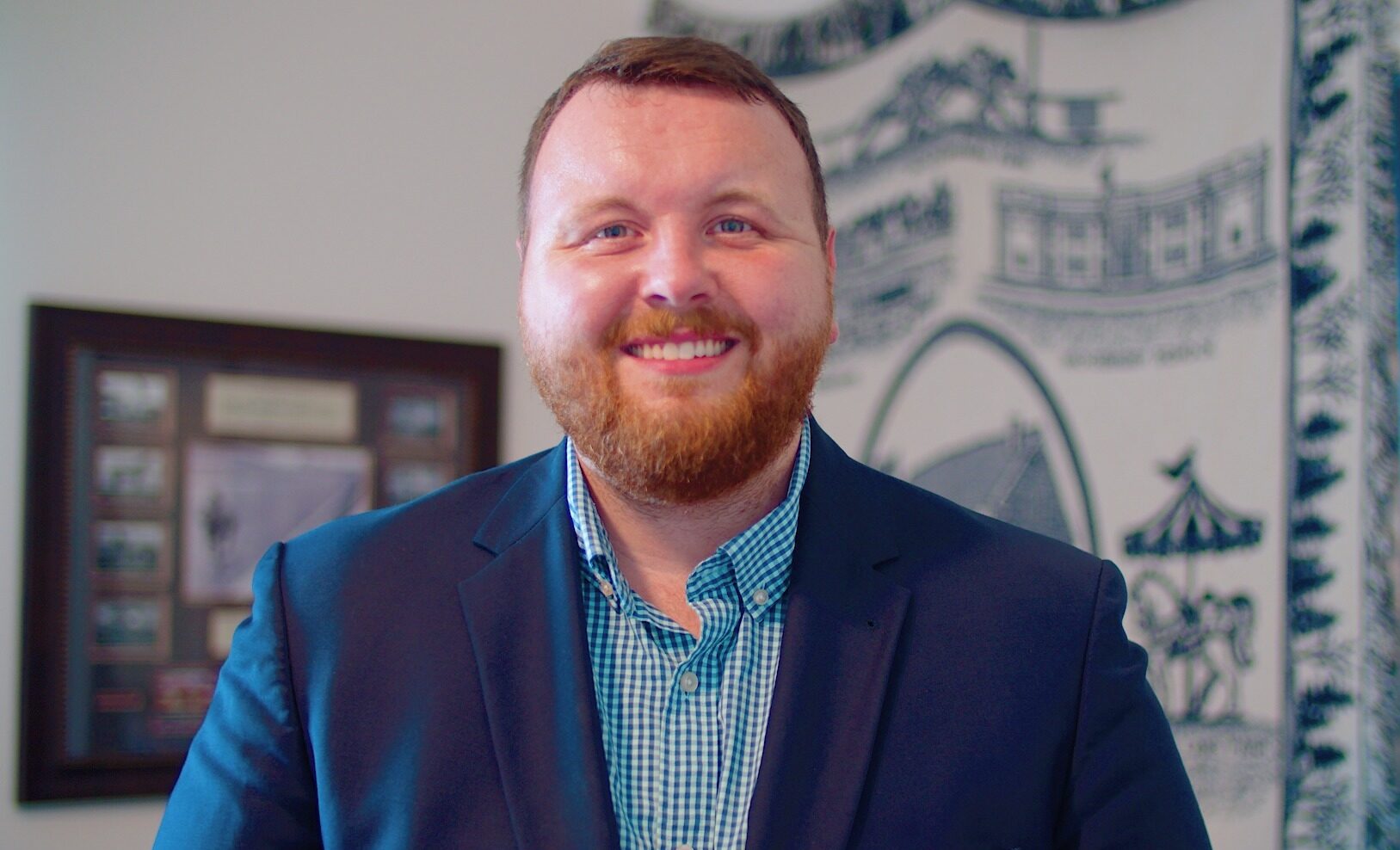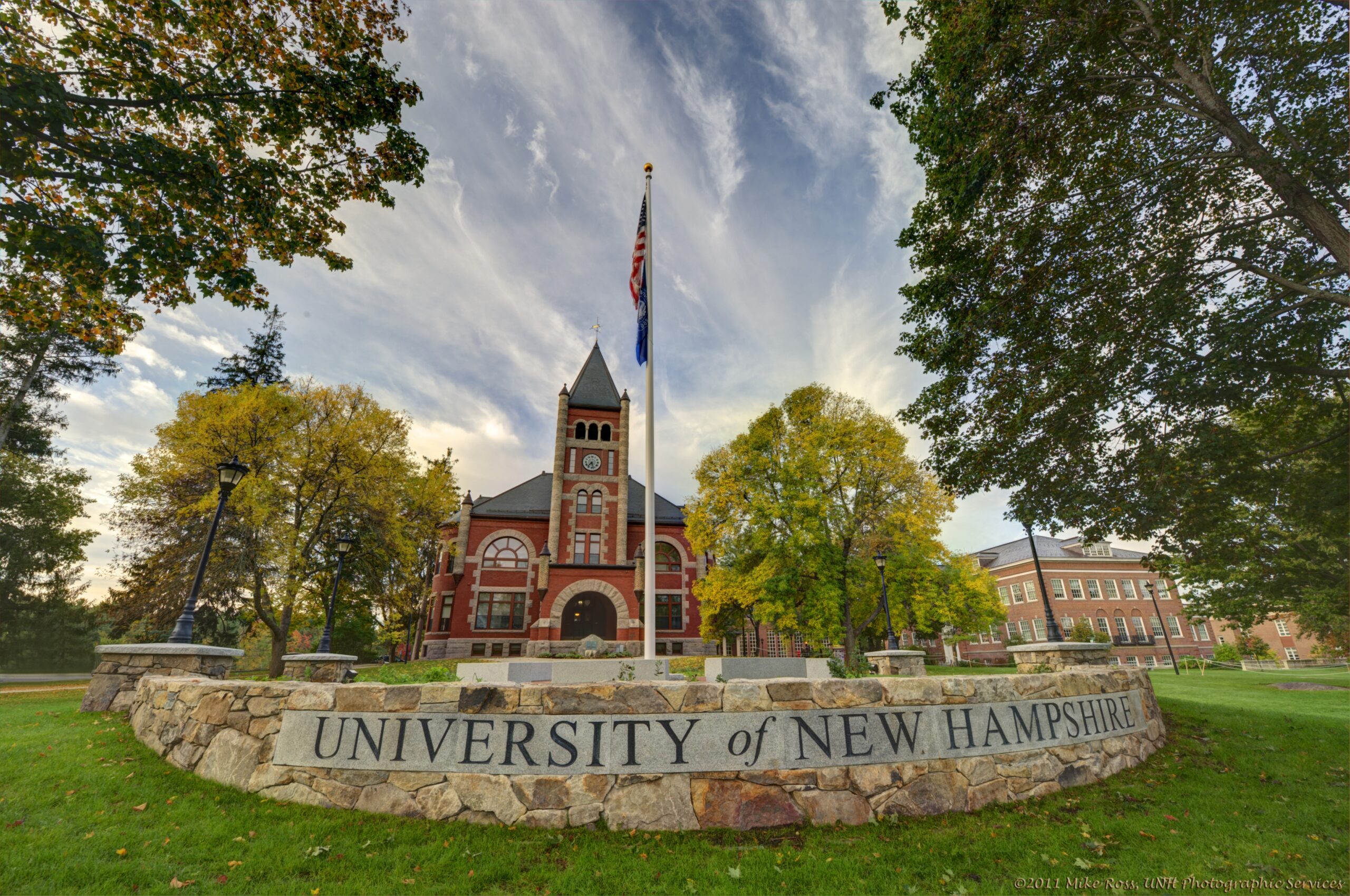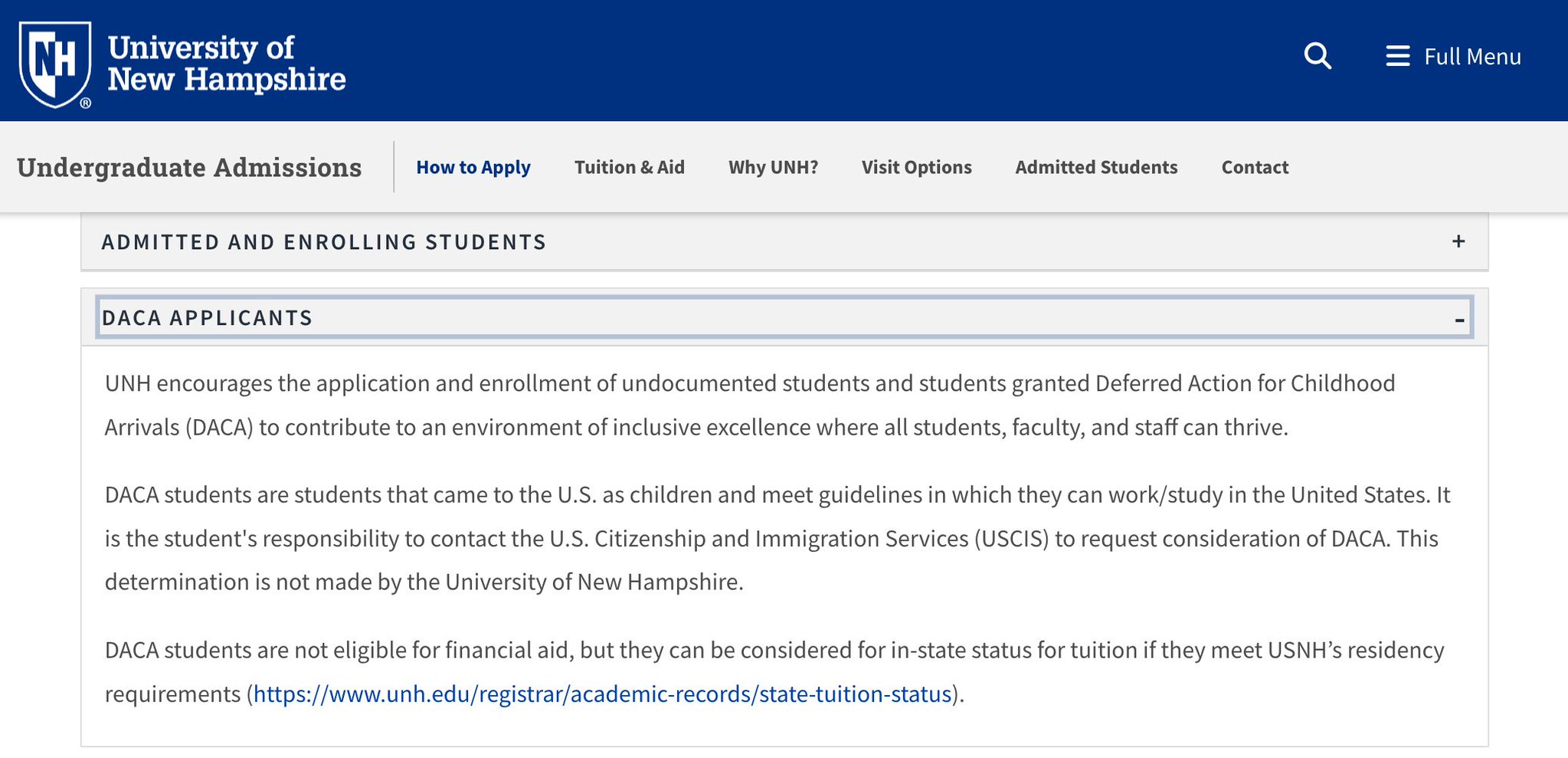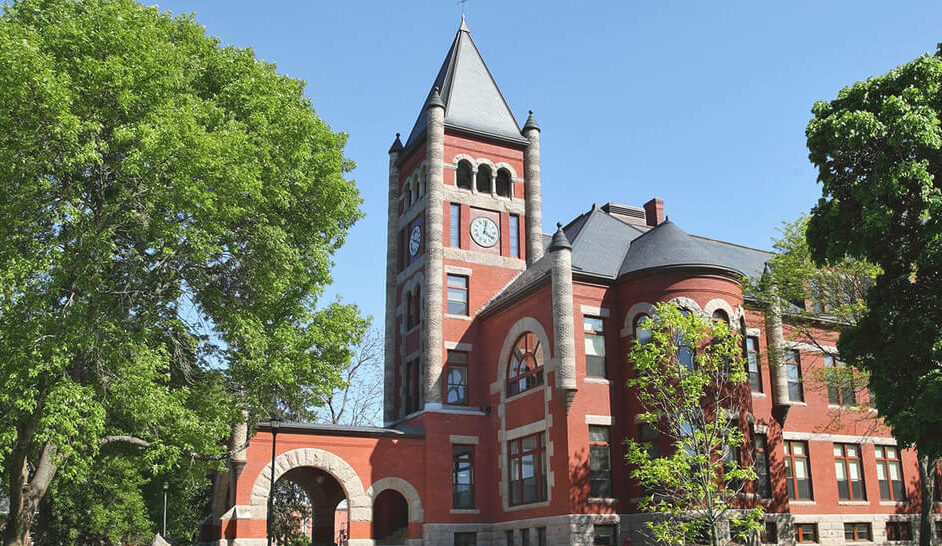UNH Swats Down Sweeney on Illegal Immigrant Student Complaints

It turns out there are far fewer illegal, or undocumented, students in the New Hampshire college system than Rep. Joe Sweeney (R-Salem) feared.
Sweeney’s response? Even one is too many.
Sweeney’s been talking for weeks about the fact that the University System of New Hampshire and the University of New Hampshire accept illegal immigrants as students. He argues they are potentially granting some of the illegals lower-cost, in-state tuition, which he says should go to legal residents.
The Salem Republican has been publicly calling on USNH to release the number of illegal immigrants enrolled in the state’s public college system.
On Wednesday, the university system released the number. According to a statement from the USNH, there are a total of three DACA-qualified students enrolled at either UNH, Keene State College, or Plymouth State University in this spring semester out of more than 21,000.
DACA stands for Deferred Action for Childhood Arrivals, an immigration policy that gave people who were brought into the country illegally as children some legal protections and rights. It was instituted under President Barack Obama, halted in President Donald Trump’s first term, and brought back during President Joe Biden’s term. It is now subject to litigation and pending appeals.
Sweeney, the Deputy Majority Leader in the House, has been hammering schools over the fact that 2,400 New Hampshire kids have been turned away from UNH over the past four years. He questioned how many of those students were competing for slots at the schools with illegal immigrants.
USNH pointed out that more than one-third of students who apply at one USNH school also apply to at least one other in the system.
“So, while a student may have been denied admission at one USNH school, they may have been admitted to another. In fact, USNH accepted 95.2 percent of New Hampshire resident students to at least one institution over the past four fall terms,” its statement reads. “The number of students denied admission to any institution over the past four fall terms was 1,083 individuals (4.8 percent) out of 22,557 applicants.”
And illegal immigration does not play a factor in students getting turned away, according to USNH Chancellor Catherine Provencher. New Hampshire’s higher education institutions have the capacity to add students and will accept all qualified New Hampshire applicants. If they can make the grade.
“Students are denied admission if they are not academically prepared,” Provencher said. “The last thing we want to do is have students paying tuition and possibly taking on debt if we do not think they will succeed academically. We do not admit any students from outside of New Hampshire at the expense of our Granite State students.”
Undocumented or illegal students do not qualify for financial aid, according to the statement. As for Sweeney’s claim that people in New Hampshire illegally could still be getting the lower in-state tuition rate, USNH insists they have safeguards in place.
“USNH students who pay in-state tuition rates must meet all New Hampshire residency requirements as set forth by the USNH Board of Trustees and sign an affidavit under penalty of perjury that they are legal residents of the United States,” the statement reads.
Sweeney and other advocates of increased immigration enforcement are less-than-impressed by the “sign an affidavit” standard.
And Sweeney ally Rep. Ross Berry (R-Weare) notes the immigration status information comes not from federal records, but from students self-reporting their immigration status on a form.
“That ‘three’ number is self-reported. Does anyone really believe that every illegal immigrant in the USNH system self-reported their actual status?” Berry asks.
Sweeney has been sending around a screenshot of the UNH application website that states, “DACA students are not eligible for financial aid, but they can be considered for in-state status for tuition if they meet USH’s residency requirements” to back up his claims.
When NHJournal checked the UNH website on Tuesday, that language had been removed.
Asked Wednesday about the website change, UNH representative Tania DeLuzuriaga dismissed it as an oversight.
“This was outdated information that was posted under a prior administration and was overlooked until it was pointed out,” DeLuzuriaga said
Sweeney says the unwillingness of the university system to address the illegal immigration issue could have unintended consequences.
“If USNH won’t take this seriously, then it’s time to consider 287(g) agreements between campus police and ICE to restore accountability.”











